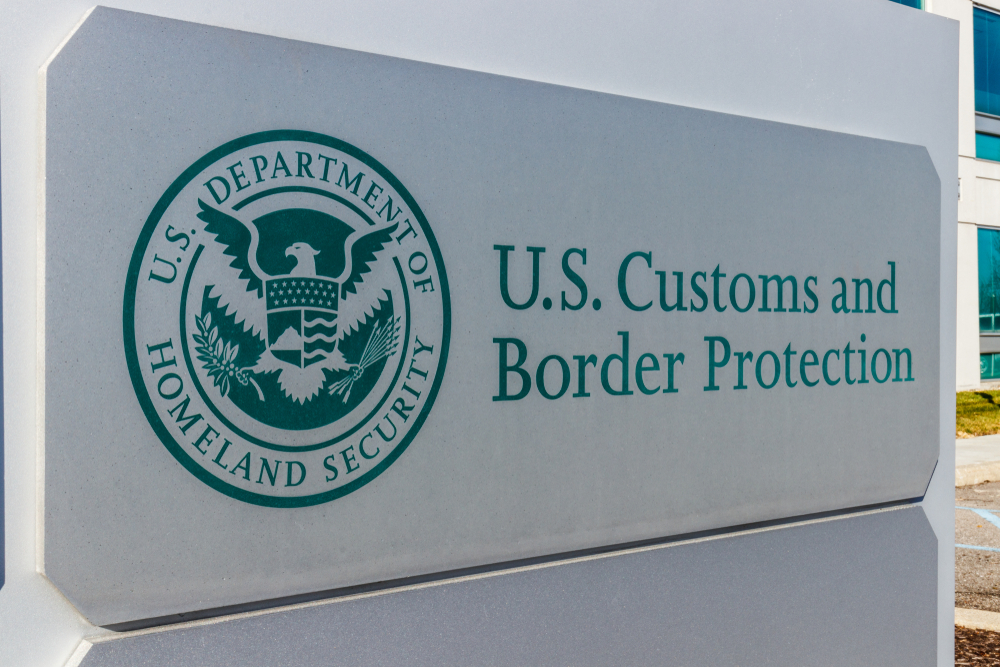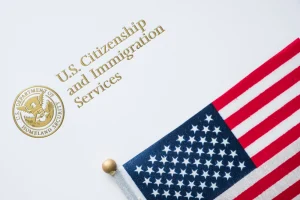By Brian Figeroux, Esq. | Editorial credit: Jonathan Weiss / shutterstock.com
Beginning April 11, 2025, the Department of Homeland Security (DHS) will require alien registration. The registration deadline is May 10, 2025—30 days from the effective date.
On March 11, 2025, the U.S. Department of Homeland Security (DHS) unveiled a draft interim final regulation (IFR) that reshapes the framework of alien registration in the United States. Implemented through the new Form G-325R, this rule enhances compliance tracking by integrating online registration, biometric data collection, and mandatory documentation requirements. This article provides a comprehensive analysis of the policy’s scope, compliance obligations, and potential legal ramifications for foreign nationals and immigration professionals. Questions about this or any other immigration issue? Ask the lawyer. Schedule a consultation today. Call 855-768-8845 or visit http://www.askthelawyer.
Policy Overview: Purpose and Implementation
The initiative stems from long-established requirements in the Immigration and Nationality Act (INA), specifically under 8 U.S.C. §§1301-1306. However, the current rollout marks a shift toward:
- Digital submission via USCIS online accounts
- Mandatory fingerprinting appointments
- Enforcement through fines and criminal penalties
The new registration policy took effect on April 11, 2025.
Who Must Register?
Under this new mandate, the following categories are now subject to registration:
- Canadian visitors who entered at land borders without an I-94
- Foreign nationals without inspection (EWI)
- Individuals paroled into the U.S. without evidence of registration
- Minors who turn 14 while in the U.S.
- Foreign nationals with denied or pending petitions, without fingerprinting history
Who Is Exempt?
Some individuals are specifically exempt:
- U.S. citizens
- American Indians born in Canada with 50% American Indian blood
- Members of the Texas Band of Kickapoo Indians
- Diplomats and certain nonimmigrants under A, G, or NATO classifications
Form G-325R: Data Collection and Process
The G-325R requires comprehensive personal and legal details:
- Current and historical addresses
- Immigration and arrival data
- Full criminal background disclosure
- Biographic details (race, ethnicity, physical traits)
- Family and marital information
Registration Steps
- Create or log into a myUSCIS account
- Complete and submit Form G-325R online
- Attend a biometrics appointment (fingerprints, photograph, signature)
- Download the Proof of Alien Registration certificate
Penalties for Non-Compliance
Failure to register or update information can lead to severe consequences:
| Violation | Fine | Penalty |
|---|---|---|
| Willful failure to register | Up to $5,000 | Up to 6 months imprisonment |
| Failure to notify address change | Up to $5,000 | 30 days imprisonment or removal |
| Not carrying proof of registration (18+) | Up to $5,000 | Up to 30 days imprisonment |
Note: Guardians are liable for failure to register minors.
Special Considerations for Minors and Exceptions
- Children must register within 30 days of turning 14
- Fingerprinting exemptions apply to:
- Individuals under 14 or over 79
- Diplomats and representatives of international organizations
- Those who depart within one year while maintaining valid nonimmigrant status
Proof of Registration: Acceptable Documents
Acceptable forms of registration proof include:
- I-94 or I-94W (even if expired)
- Forms I-485, I-687, I-698, and others—even if denied, provided fingerprints were submitted
- Employment Authorization Documents (EAD)
- Notices of deportation/removal proceedings (e.g., I-862)
- A valid entry visa with an admission stamp
Lost Documents and Repeat Entries
- Lost Registration: Must apply immediately for a replacement
- Re-entry: If an I-94 doesn’t allow multiple entries, a new registration may be required after re-entry
Operational Concerns and Practical Pitfalls
Technical Limitations
- Canadians must select “Entered Without Inspection” due to a dropdown limitation in G-325R
- Digital I-94s might not be accepted during enforcement encounters
- Mobile devices storing documents may be subject to broader CBP searches
Legal Ambiguities
- USCIS has extended acceptable proof beyond CFR listings, creating potential inconsistencies
- A 2025 case (USA v. Florez) marked the first criminal filing under the new rule
Address Changes and Ongoing Responsibilities
All registrants (except VWP and A/G visa holders) must report any change of address within 10 days. Failure to do so can lead to criminal charges or removal proceedings, unless excused by valid circumstances.
Conclusion
The 2025 alien registration regulation modernizes a decades-old policy but introduces significant compliance challenges. While digitalization and biometric checks enhance accountability, technical flaws and broad enforcement power could jeopardize fair treatment for many foreign nationals.
Attorneys, employers, and immigrants must work proactively to meet the new obligations, maintain documentation, and monitor any changes in DHS implementation strategies.




